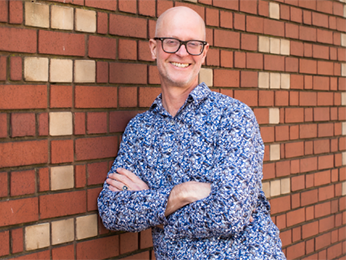LBS research provides effective, cost-efficient and scalable interventions to positively recalibrate the relationship between employers and employees

The challenge of employee engagement
Studies by Gallup and others point to a raft of benefits that accrue to organisations when their employees feel engaged by their work. Among these are consistent gains in:
- Productivity
- Customer loyalty
- Quality
- Profitability vis à vis the competition.
Engaged employees bring more of themselves to the workplace: more creativity; more discretionary effort; greater resilience and an increased capacity to learn and innovate, to pivot and adapt to change. Conversely, when people tune out of their work—when they perceive work to be a transaction to get through on the commute to the weekend—employers are exposed to significant risks. The same studies show that organisations with low workforce engagement are prone to materially higher rates of employee turnover, absenteeism, defects in product or service quality, slumps in productivity and even shrinkage or theft. Put simply, engagement is a key measure of a firm’s ability to thrive—or not.
Yet in 2024, there is evidence that an overwhelming majority of organisations are still failing to engage their workers meaningfully. Another Gallup study suggests that around 77% of the workforce feel detached from their employers. And, going forward, the outlook is worrying.
"According to Gallup, in 2024 disengaged workforces come with a price tag upwards of $1.9 trillion in lost productivity."
Dan Cable
Societal and demographic shifts are only set to increase the pressure on organisations to connect more deeply with their workers. According to the World Economic Forum, Gen Z will make up more than 27% of the workforce by 2025. This is a cohort that values meaning as much as salary, that is willing to pay for purpose, and that is proactive about quitting jobs that fail to provide engagement and satisfaction or alignment in values and mission.
So, what sustainable and impactful measures can organisations take to connect with and mobilise their workforce?
Dan Cable is Professor of Organisational Behaviour at London Business School. He has developed an extensive body of research looking at effective, cost-efficient and scalable interventions to positively recalibrate the relationship between employers and employees.
Unlocking employee potential
A major tranche of Cable’s recent work relates to and stems from Alive at Work, his 2018 internationally best-selling exploration of the biology of engagement. The book delves into the neurological processes attached to learning—seeking systems or circuits in the prefrontal cortex that are activated when we engage with new environments, tasks or challenges. Once switched on, these circuits produce dopamine, a feel-good hormone that spurs and rewards more exploring and learning, creating a positive behavioural loop or “contagion,” says Cable; one that motivates us to lean into curiosity, to adapt and to pivot ahead of change. Alive at Work has led to numerous speaking engagements, as well as major field studies and projects with organisations worldwide, looking at simple but innovative ways to disrupt the routinisation of work, among them: inviting employees to devise their own job titles; having new employees articulate their personal strengths in a dedicated setting; and assessing the impact of honesty in job interviews—how a warts-and-all mindset yields happier and more productive experiences in the workplace.
Alive at Work has also provided a springboard into new lines of research that Cable and his colleagues are presently pursuing. Among these, a forthcoming study finds a clear link between humble leadership—a framework introduced in Alive at Work—and employee productivity. The leaders are those that model a certain vulnerability in the workplace and a learning orientation that help create the conditions for more engaged, creative work and increased employee retention. In the study, Cable and colleagues surveyed 3000+ workers and managers across a slew organisations and industries in the US surfacing consistent evidence that humble leadership yields better results. The reason? Fear-based management approaches lock out curiosity and shut off seeking systems and the dopamine in the brain, argues Cable. Leaders looking to orchestrate a productive and engaged return to the office in the longtail of the pandemic would do well to eschew the stick in favour of the carrot of humble leadership, he says.
Another field study with multinational consultancy firm and a Unilever subsidiary explores what happens when employees are allocated fixed time slots during the working week to focus on a specific project that they believe to play to their strengths. Preliminary findings from both organisations are striking. Among these are:
Profit upswing
in gross profit productivity on one country HQ
Drop in absenteeism
during the period of the study
Senior leadership in one of the companies is now exploring the possibility of rolling out Cable and colleagues’ methodology across the organisation in efforts to boost engagement and to “embed a greater sense of importance and less urgency” among its workforce, he says.
Meanwhile, Cable’s new book, Exceptional, introduces the idea of a “living eulogy.”
Here he sets out a novel framework and methodology for gathering feedback and data from family, friends and colleagues that pinpoint specific moments of positive impact: past and historic instances of “best selfhood” that can be used to restructure and craft the way we approach work such that it has greater meaning and purpose. The book has, in turn, informed a three-pronged study that demonstrates how different groups—government officials, US military personnel and (virtual) working teams—are better equipped to engage with colleagues and share information if they are exposed to the self-affirmation, worth and feelings of acceptance that come from this kind of consolidated feedback. Organisations looking to connect with employees and deepen their sense of purpose can find ways to replicate and implement the methodology set out by the book and the study, says Cable.
The impact
Hailed as a “playbook for the next (industrial) revolution,” Alive at Work has reached well over 40,000 readers globally and has captured the imagination of many of the world’s foremost organisations, among them Facebook, MetLife, Ericsson, BMW, Estee Lauder, HSBC and Louis Vuitton. Leaders at these and other companies have invited Cable in to address their senior staff and many have gone on to implement the book’s many insights and principles in their organisational and management practices.
Indian multinational Wipro participated in Cable’s field study allowing newcomers dedicated time to articulate personal strengths. They reported a reduction in staff turnover by 33% as a result of the intervention and have gone on to implement the practice across their call-centre functions. Where staff were permitted to write their own job titles as US Make a Wish Foundation, survey respondents attested to feeling less considerably emotional exhaustion at work—a finding later replicated in a major US health care system.
At the same time, Cable’s work on best self and living eulogies, encapsulated both in Alive at Work and Exceptional, continues to create a positive ripple effect across the world.
Human resource multinational Randstad have integrated his findings into leadership training for more than 1000 senior leaders, while best self informs its people-centric talent matching Customer Delight programme across 14 countries. Randstadt is now set to collaborate in a forthcoming field study on “fast vulnerability,”using an experimental rubric devised by Cable to forge more immediate trust and engagement between managers and employees.
"Engaged employees bring more of themselves to the workplace: more creativity; more discretionary effort; greater resilience and an increased capacity to learn and innovate, to pivot and adapt to change."
Dan Cable
Living eulogies represent perhaps one of the most compelling areas of impact in Cable’s work over the years. Through collaboration with the University of Michigan’s Center for Positive Organizations and in his Executive Education teaching at London Business School, Cable has reached an approximate 15,000 leaders globally—beneficiaries of the methodology that he sets out in Exceptional. Cable reports that the living eulogy work typically leaves individuals “humbled and emotionally shaken by the willingness of their family, friends, peers and colleagues to document memories of them at their best.” The reports created—accounts of each individual’s actions, words and decisions through the lens of those impacted—constitute a powerful tool, says Cable, for bringing our best, most engaged, most purposeful selves to work; and empowering others to do the same.
More impact stories
Our research is helping to solve some of society's most challenging questions and concerns.
Research highlights
Our faculty publish over 100 papers and articles every year, many of which are featured in top-ranked business journals. Discover what our researchers are working on and how they are shaping the world.

The motherhood wage penalty and female entrepreneurship
The study reveals that the motherhood penalty, characterised by reduced earnings opportunities in wage employment due to motherhood status, significantly drives female entrepreneurship, particularly among women facing wage discrimination, offering insights into women's career choices amidst workplace inequality.
LBS faculty: Olenka Kacperczyk
Double take: uncovering disagreement about moral hypocrisy
The research shows that judgments of hypocrisy are biased by social motivations, with people more likely to accuse enemies and defend allies based on how they perceive similarities in behaviour.
LBS faculty: Jonathan Berman

Reject and resubmit: A formal analysis of gender differences in reapplication and their contribution to women’s presence in talent pipelines
Research combining mathematical modelling with data from executive hiring, crowdfunding, and patent applications challenges the assumption that increasing the number of women in application pools will improve gender diversity.
LBS faculty: Isabel Fernandez-Mateo






